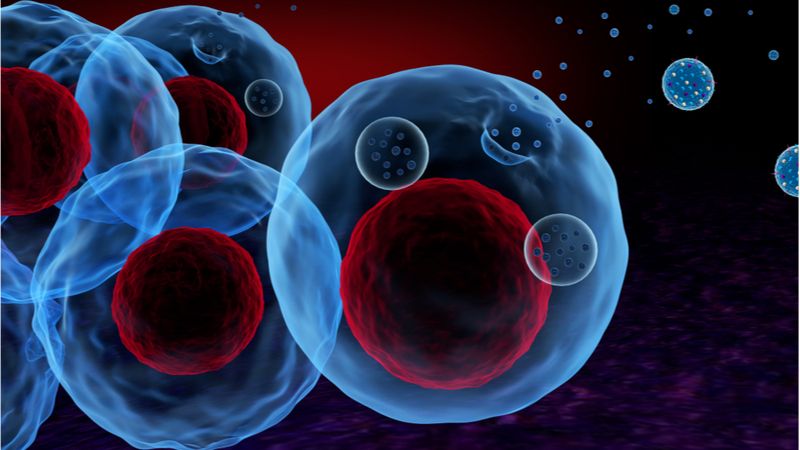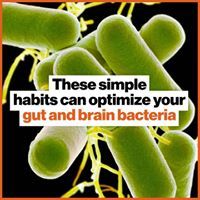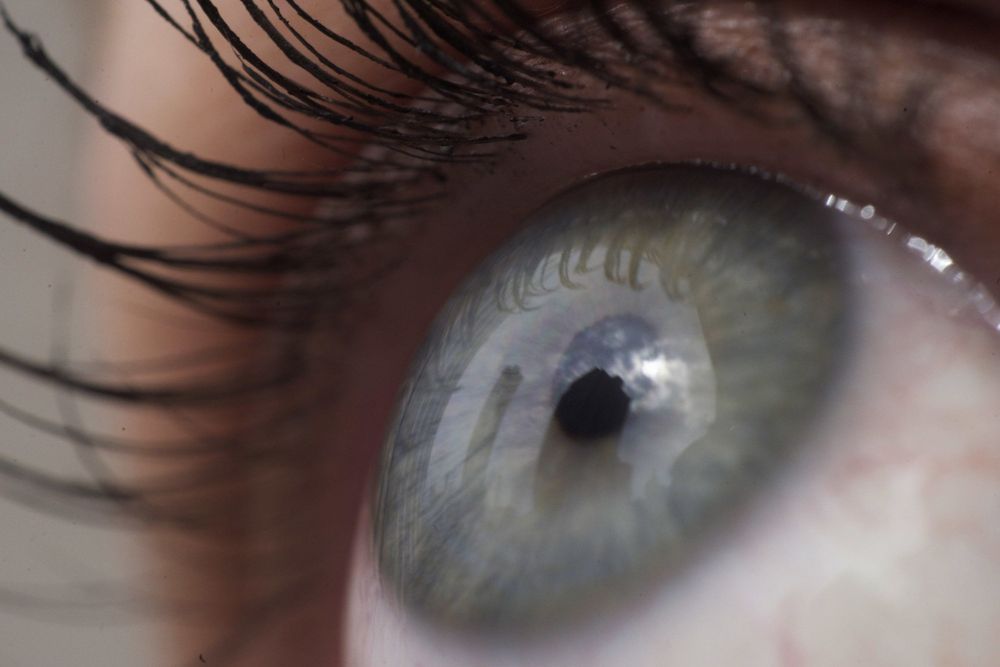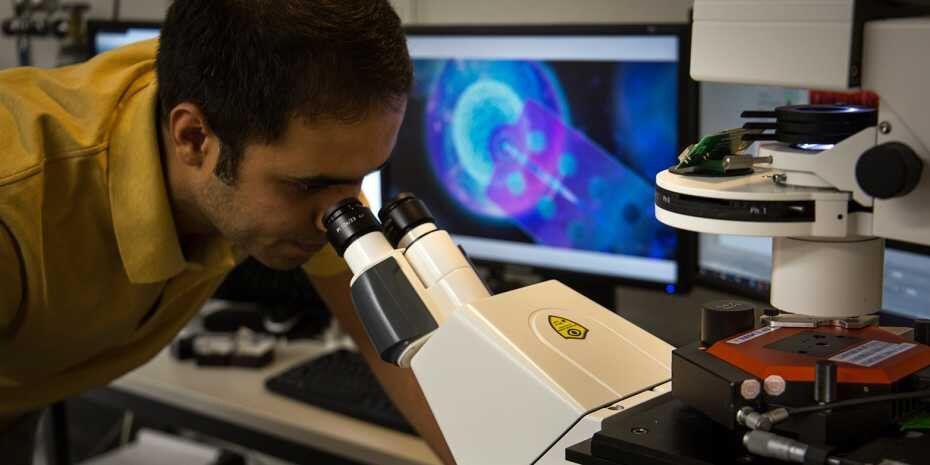Archive for the ‘neuroscience’ category: Page 695
Jul 29, 2019
How your immortal consciousness will travel the universe
Posted by Paul Battista in categories: life extension, neuroscience, physics, space
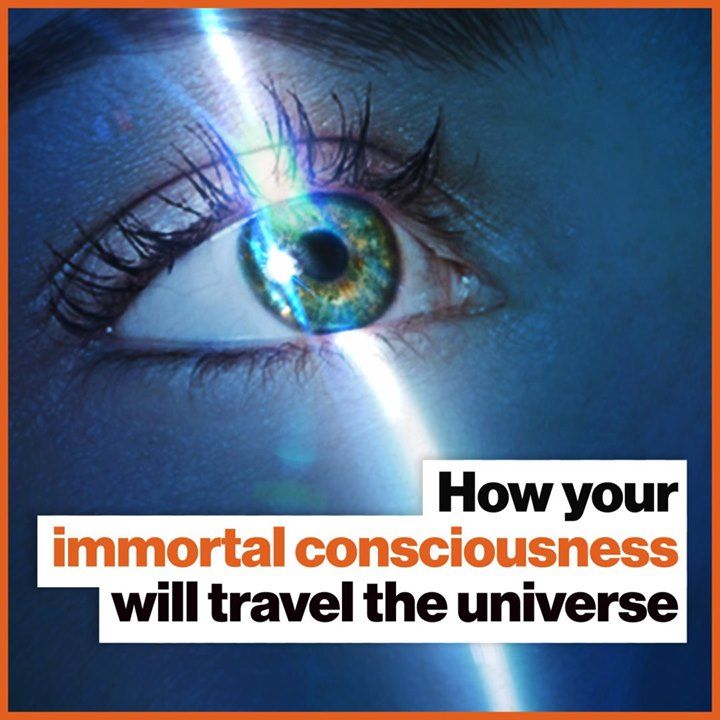
In about 100 years, theoretical physicist Michio Kaku believes we’ll explore the universe as pure consciousness — traveling at the speed of light, looking at asteroids, comets, meteors, and eventually the stars. “All of this within the laws of physics,” he says.
Jul 29, 2019
New Method of Halting α-Synuclein Aggregation
Posted by Steve Hill in categories: biotech/medical, life extension, neuroscience
Researchers from the Beijing Institute of Brain Disorders have discovered a new method of using exosomes to deliver aptamers that prevent the accumulation of α-synuclein aggregates, which are the cause of Parkinson’s disease [1].
α-Synuclein Aggregates
Like Alzheimer’s, Parkinson’s disease is characterized by protein aggregation caused by a loss of proteostasis, one of the hallmarks of aging. In order for the brain to function properly, non-aggregated α-synuclein proteins are needed in order to facilitate the release of dopamine, a neurotransmitter, in nerve cell synapses. α-synuclein only becomes a problem when proteostasis fails and the proteins misfold, aggregate, and accumulate.
Jul 28, 2019
An Israeli Scientist Paves the Way to Alzheimer’s Cure, One Algorithm at a Time
Posted by Paul Battista in categories: biotech/medical, business, chemistry, information science, neuroscience
Scientists at work in laboratory. Photo: Public domain via Wikicommons.
CTech – When chemistry Nobel laureate Michael Levitt met his wife two years ago, he didn’t know it would lead to a wonderful friendship with a young Israeli scientist. When Israeli scientist Shahar Barbash decided to found a startup with the aim of cutting down the time needed to develop new medicine, he didn’t know that a friend’s wedding would help him score a meeting with a man many want to meet but few do. But Levitt’s wife is an old friend of Barbash’s parents, and the rest, as they say, is history.
One of the joys of being an old scientist is to encourage extraordinary young ones, Levitt, an American-British-Israeli biophysicist and a professor at Stanford University since 1987, said in a recent interview with Calcalist. He might have met Barbash because his wife knew his family, but that is not enough to make him go into business with someone, Levitt said. “I got on board because his vision excited me, even though I thought it would be very hard to realize.”
Jul 28, 2019
These simple habits can optimize your gut and brain bacteria
Posted by Paul Battista in categories: food, life extension, neuroscience
Click on photo to start video.
Want to live a healthier, longer life? Try taking more prebiotics — also, don’t eat sometimes.
In this video, bestselling author Dave Asprey explains.
Jul 27, 2019
‘In God We Trust’ signs going up in South Dakota public schools
Posted by Steve Nichols in categories: education, law, neuroscience
Is this new law anti-kemetic and anti-pagan as it implies only one “God”? And why should atheists put up with this public brainwashing? A new state law that took effect this month requires all public schools in the state’s 149 districts to paint, stencil or otherwise prominently display the national motto.
RAPID CITY, S.D. (AP)- When students return to public schools across South Dakota this fall, they should expect to see a new message on display: “In God We Trust.”
A new state law that took effect this month requires all public schools in the state’s 149 districts to paint, stencil or otherwise prominently display the national motto.
Continue reading “‘In God We Trust’ signs going up in South Dakota public schools” »
Jul 27, 2019
First CRISPR study inside the body to start in US
Posted by Genevieve Klien in categories: biotech/medical, genetics, neuroscience
Patients are about to be enrolled in the first study to test a gene-editing technique known as CRISPR inside the body to try to cure an inherited form of blindness.
People with the disease have normal eyes but lack a gene that converts light into signals to the brain that enable sight.
The experimental treatment aims to supply kids and adults with a healthy version of the gene they lack, using a tool that cuts or “edits” DNA in a specific spot. It’s intended as a onetime treatment that permanently alters the person’s native DNA.
Jul 26, 2019
Listening to the whispers of individual cells
Posted by Paul Battista in categories: biotech/medical, neuroscience
For the cells in our bodies to function as a unit, they must communicate with one another constantly. They secrete signalling molecules—ions, proteins and nucleic acids—that are picked up by adjacent cells, which in turn pass on the signal to other cells. Our muscles, digestive system and brain are only able to function thanks to this type of communication. And this is the only way in which our immune system can recognise pathogens or infected cells and react accordingly—again, by sending out signals to mobilise the immune defences. If something goes wrong with this signalling between cells, it can lead to diseases such as cancer or autoimmune disorders. “This is why it is important to research which signals the cells send out in which situations,” says Morteza Aramesh. The biophysicist, who works in the Laboratory of Biosensors and Bioelectronics at ETH Zurich, has developed a new method that does precisely that: it listens to communication between individual cells.
An innovative nanosensor
Although it has been possible to measure these signals in the past, it could only be done for entire populations of hundreds or thousands of cells. The methods were not sensitive enough to use on individual cells, meaning that the signalling molecules from individual cells were submerged into the average of the total cell population: “It was impossible to detect differences between cells in order to identify diseased cells, for instance,” says Aramesh.
Jul 25, 2019
Restless REM Sleep May Contribute to Mood, Anxiety Disorders
Posted by Paul Battista in category: neuroscience
Restless rapid eye movement (REM) sleep impedes emotional processing, which may contribute to mood and anxiety disorders, new research suggests.
A team of Dutch investigators used fMRI to scan the brains of participants who underwent a stressful experience — in this case, hearing themselves sing out of tune. Brain activity was measured using electroencephalography (EEG).
The next morning, after spending the night in a sleep laboratory, participants were subjected to the same unpleasant experience. Those who had experienced REM sleep were less distressed, whereas those with restless REM sleep were once again upset.
Jul 23, 2019
Targeting the Microbiome to Treat Malnutrition
Posted by Genevieve Klien in categories: biotech/medical, food, health, neuroscience
A few years ago, researchers discovered that abnormalities in microbial communities, or microbiomes, in the intestine appear to contribute to childhood malnutrition. Now comes word that this discovery is being translated into action, with a new study showing that foods formulated to repair the “gut microbiome” may help malnourished kids rebuild their health [1].
In a month-long clinical trial in Bangladesh, 63 children received either regular foods to treat malnutrition or alternative formulations for needed calories and nutrition that also encouraged growth of beneficial microbes in the intestines. The kids who ate the microbiome-friendly diets showed improvements in their microbiome, which helps to extract and metabolize nutrients in our food to help the body grow. They also had significant improvements in key blood proteins associated with bone growth, brain development, immunity, and metabolism; those who ate standard therapeutic food did not experience the same benefit.
Globally, malnutrition affects an estimated 238 million children under the age 5, stunting their normal growth, compromising their health, and limiting their mental development [2]. Malnutrition can arise not only from a shortage of food but from dietary imbalances that don’t satisfy the body’s need for essential nutrients. Far too often, especially in impoverished areas, the condition can turn extremely severe and deadly. And the long term effects on intellectual development can limit the ability of a country’s citizens to lift themselves out of poverty.

